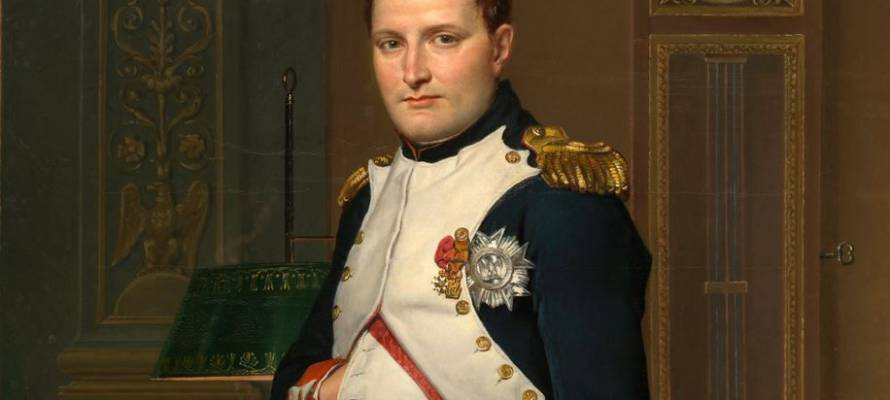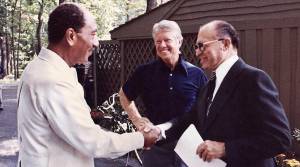This week in Israel’s history, Napoleon issued a proclamation which recognizes the Jews as the rightful heirs to the land; the US sympathizes with Israel’s fear of an independent Palestinian state.
April 20, 1799: Napoleon Issues Proclamation Recognizing the Jews as the Rightful Heirs to Palestine
Towards the end of the 18th century, Napoleon Bonaparte, French military leader and future emperor, was hoping to end British control of trade and open a French route to the east. However, in July 1798, after a successful campaign against the Mamelukes in Egypt, and having captured both Cairo and Alexandria, Napoleon was routed by the British. The British navy handily defeated the French fleet, cutting off Napoleon’s only escape from Egypt by sea.
Over the course of the next nine months, Napoleon went on the offensive. Defeating the Turkish forces in Gaza, he headed north towards Haifa. During a siege on the city of Acre, which lasted much longer than he had anticipated due to the activities of the British, Napolean attempted to win the support of the Jews of Palestine.
On April 20, 1798, Napoleon issued a proclamation indicating that France, unlike other nations, had no intention of conquering the Jews and that they (the Jewish people) were the rightful inheritors of the land of Palestine.
Unfortunately for Napoleon, the Jews of Palestine, especially Jerusalem, were wary of the French and actually assisted the Turks in defending the city. By June, Napoleon left Palestine with his beleaguered forces and returned to Egypt.
April 22, 1978: US Understands Israel’s Fear of an Independent Palestinian State
As a result of the Six Day War of 1967, Israel gained control over the Sinai Peninsula. However, it wasn’t until the signing of the Egyptian-Israeli peace treaty on March 26,1979, that Israel fully withdrew from the Sinai and returned control to Egypt.
The peace treaty, according to which Egypt became the first Arab state to officially recognize Israel, was made after 16 months of intense negotiations between Egyptian President Anwar Sadat and Israeli Prime Minister Menachem Begin.
After Sadat’s historic visit to Jerusalem in November 1977, which marked the beginning of the negotiations, Alfred “Roy” Atherton, the US assistant secretary of state, began working full time to bring the two sides closer together. During this intense negotiation period, on April 22, 1978, Atherton explained the American view of the negotiations, making the following statement:
“It is the US’s judgment that it will not be possible to achieve agreement on principles that call for total withdrawal to the pre-1967 lines or for the unrestricted right of self- determination for the Palestinians, which the Israelis almost unanimously believe would lead inevitably to an independent state. Principles such as these, when applied to the West Bank and Gaza, provoke security concerns in Israel with which the US sympathizes. President Sadat is also clearly on the record as being aware of Israel’s security needs.”
By Penina Taylor, United with Israel













